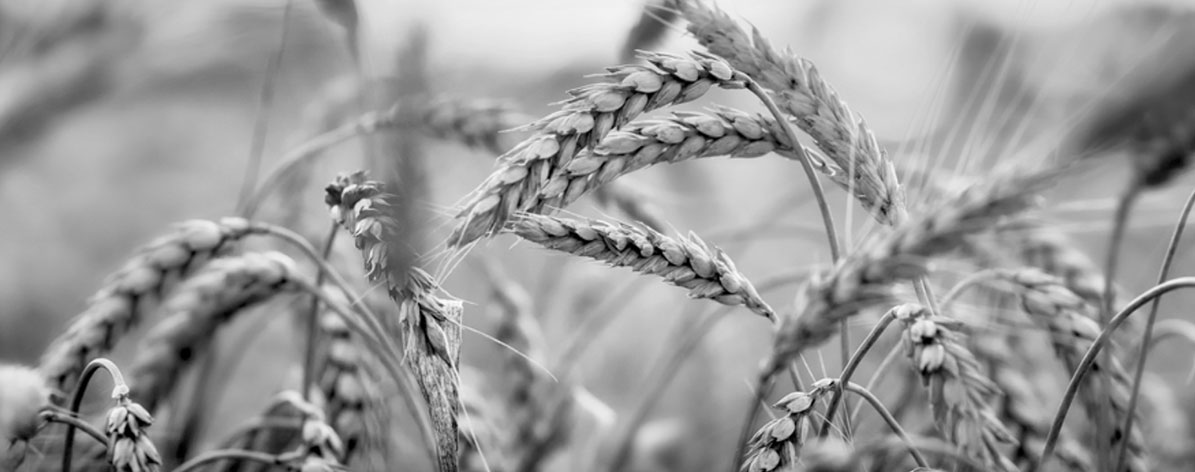The future of food

What does the collision of Covid, climate change and Brexit mean for the food industry? Christian Koch speaks to leading CAs in the sector.
Coronavirus has transformed our relationship with our food. From the panicked stockpiling and empty supermarket shelves in March to the troubling times facing our pubs, cafes and restaurants, the questions about what we eat and how we go about putting it on our plates have become difficult to ignore.
And even before the pandemic, the food industry was rising up the UK business agenda, with fears that a no-deal Brexit might inflate food prices and interrupt supply chains, or – on a worldwide scale – of global warming triggering harvest failure. As the UK steels itself for the possibility of further lockdowns, we speak to four CAs working across the food chain to hear where they are now and what they think will happen next.
- Janne Hallinan CA, Founder, How2EnjoyWine
- Joseph Fernandes CA, Financial Controller, Kraft Heinz
- John Watson CA, Chair, Intelligent Growth Solutions
- Koosha Kowsari CA, Co-Founder, Cantina UK
2021
Lamb graveyards, empty shelves (again) and prosecco making way for fizzy Chilean wine
The future of food…in a post-Brexit world
At 11pm on New Year’s Eve, the United Kingdom is scheduled to leave the European Union single market and customs union. If the Brussels divorce settlement ends sans deal, what does this mean for your weekly shop?
A no-deal Brexit would see the UK trading with the EU under World Trade Organisation terms, with all imports from the remaining 27 countries subject to tariffs. This would likely mean price rises on EU-imported food, something recently flagged by the supermarket chain Morrisons, which warned that shortage of storage space could affect the retail price of fruit and vegetables.
Availability could be affected too: nearly all olives, chillies and tomatoes sold in the UK are imported from the EU. Koosha Kowsari CA, the co-founder of South American-themed food start-up Cantina UK, says, “The ingredients for our chimichurri sauce, such as olive oil and coriander, could become more expensive and be more of a hassle to get hold of.”
The price of European wine would increase, with cheaper selections from, say, Australia or Chile possibly replacing cava or prosecco. “Extra costs and complexities around importing EU wines could have a huge impact on the variety that UK consumers are used to seeing in their shops,” says wine expert and founder of How2EnjoyWine, Janne Hallinan CA.
Meanwhile, increased customs checks could delay the transportation of perishable food, once again raising the prospect of bare supermarket shelves. On the upside, a no-deal Brexit could boost production of British goods, particularly meat. There has also been much talk of a trade deal with the US. Some advocates believe that British consumers would benefit from the potentially cheaper prices this would offer, despite fears that the UK would be flooded with chlorinated chicken and hormone-fed beef, lowering food standards while undercutting UK farmers on price.
British food exporters also face being hit by 40% tariffs. With 98% of British lamb exported to the EU, we could see as many as two million lamb carcasses going to waste while thousands of sheep farmers might be forced out of business.
What this means for CAs
Expect to be busy. With HMRC estimating that as many as 250,000 British businesses would have to make customs declarations to export to the EU for the first time post-Brexit, both C-suite and clients alike will need strong advice and scenario-planning.
2021-22
Scratch cooking, lockdown larders and ignoring sell-bys
The future of food… in a post-Covid world
The rationing and empty shelves of spring 2020 exposed the cracks in Britain’s food supply chains, not least supermarkets’ just-in-time deliveries. It could be argued, though, that Covid-19 has positively impacted the way we eat. According to environmental charity Hubbub, 57% of those surveyed said they value food more than before. With many people assembling lockdown larders, the same report also found we were throwing less in the bin and ignoring best-before dates.
One emerging trend has been for scratch cooking, rather than oven-ready meals. “I don’t see that disappearing, especially as flexiworking becomes a bigger part of life. People have more time to prep meals as they’re not commuting,” says Joseph Fernandes CA, Northern and Continental Europe Financial Controller at Kraft Heinz. “Home-workers are also cooking quick lunches, which is easier than going down the local shop… It’s important for any food company to offer ingredients to cook from home.”
What this means for CAs
“Accountants are very good at risk assessment and understanding supply chains,” says John Watson CA, Chair of Dundee-based agri-tech firm Intelligent Growth Solutions (IGS). “It’s about going back to first principles, thinking about risk and resilience, looking at big data, and matching demand with supply better.”
2023
English-produced champagne is blowing bubbles
The future of food… in a world transformed by climate change
Three years ago, in Kent, Taittinger became the first French champagne house to plant vines in British soil. The first bottle is due to be drunk in 2023, but the move, while welcome for Kent, disguises a more disconcerting truth; in the tiny geographic region of France where champagne grapes can grow, average temperatures have been consistently rising, forcing producers to look for terroir further north. As Hallinan says, “England is experiencing climates that the Champagne region used to have. They’ve spotted it is worth investing here.”
The extreme weather brought on by the climate crisis is blighting crop yields across the world. In 2019, Italy was “months away” from running out of home-produced olive oil, after freezing temperatures hit harvests. Droughts threaten Costa Rican coffee production and dustbowls destroy US wheat farms. In the UK, a fifth of our imported fresh food comes from areas threatened with climate change. When these foods become scarce, it could mean that the likes of avocados or bananas go from being affordable household staples to luxury items.
If business has an answer, it could lie in upcoming generations of leaders and consumers. “There’s an interesting evolution going on,” notes Hallinan. “Younger people – the ones really concerned by this – are moving into middle-management roles and investing in R&D to change the sustainability of their firms.”
For Kowsari, presenting his brand as anything but ethical is unthinkable. “As a start-up, ticking all those natural and ethical boxes makes the journey a lot smoother [Cantina UK uses recycled beer bottles and delivered by bicycle until scaling up made it impossible]. Businesses would much rather invest in ethical firms that show commitment [in the fight against] climate change. If you’re, say, a B-corp business, you’ll have a much better chance of raising funds.”
What this means for CAs
“The rise of ESG [environmental, social, governance] reporting will create lots of new jobs for accountants,” says Watson. “As a company, if you have got good ESG credentials, that is a competitive advantage. Your ability to raise the finance and attract the talent that you need immediately improves.”
2025
Vertical farms on high-rise roofs or disused Tube stations
The future of… farming and agriculture
Horizontal farming has been good for Homo sapiens, helping to sustain us for the past 12,000 years. But it hasn’t been so great for the planet: agriculture produces 23% of global greenhouse gas emissions (37% if packaging and transportation are included) and causes 80% of global deforestation.
But what will fuel us for the next millennia? The answer could be vertical farms – stacks of crops growing skywards – that use much less land than regular farming. Instead of soil, sun and rain, these tiered farmsteads grow plants indoors (protecting them from erratic weather) using AI and other tech to control temperature, light and humidity. Or “weather in a box” as Watson, whose IGS company provides tech solutions for vertical farms, puts it.
Vertical farms could boost cities’ strained supply chains. Trays of plant beds can be stacked pretty much anywhere: high-rise blocks, shipping containers or multi-storey car parks. It means food can be grown, harvested and delivered locally, rather than racking up huge carbon and water footprints. Urban farming has taken off recently, whether it’s the floating dairy farm in the middle of Rotterdam, or Growing Underground’s salads produced in disused air-raid shelters beneath Clapham High Street. As for vertical farms, Watson predicts, “Within maybe five years you’ll start to see them all over the place.”
What this means for CAs
Digital farming presents opportunities for accountants who can deep-dive into datasets to determine how it is performing financially. IGS is also looking for a CFO. “We would love that to be a chartered accountant from ICAS,” says Watson.
2040
Cows will be off the menu
The future of… meat
When the “Frankenberger”, the £215,000 lab-grown faux-meat with synthetic sinews and beetroot-juice “blood”, was unveiled in 2013, few could have predicted plant-based patties would become ubiquitous in supermarkets and fast-food restaurants just a few years later. Its rise has led consultancy firm AT Kearney to predict 60% of the “meat” we’ll be eating in 2040 won’t come from slaughtered animals, but plant-based or vat-grown substitutes instead.
With livestock responsible for 14.5% of greenhouse gas emissions, meat consumption plays a mammoth role in fuelling climate change. One solution to offset its impact could be a “meat tax” (as proposed by environmental research group CE Delft last year), raising the price of steaks in the UK by a quarter.
It chimes with healthy-eating trends, such as rising veganism. Today, 600,000 people in the UK are vegan, a 300% increase since 2014, according to the Vegan Society. When, for example, Kowsari’s Cantina UK planned its own mayonnaise, “the conversation to have a normal or vegan one was over in a second – it had to be vegan”.
Meat-free is on food giants’ radars too. Fernandes says 85% of Kraft Heinz products sold in the UK are now plant-based. Could we really see a future where meat-eating is as socially acceptable as smoking in the office? “With consumers becoming more obsessed with sustainability and the environment, there’ll be a push towards flexitarianism,” he says. “Meat may become a specialist item. Instead of us consuming
Register for the “ICAS Insights: Business of Food” webinar by clicking here
This article was first published in CA magazine: https://www.camagazine.co.uk/january2021#!the-future-of-food












